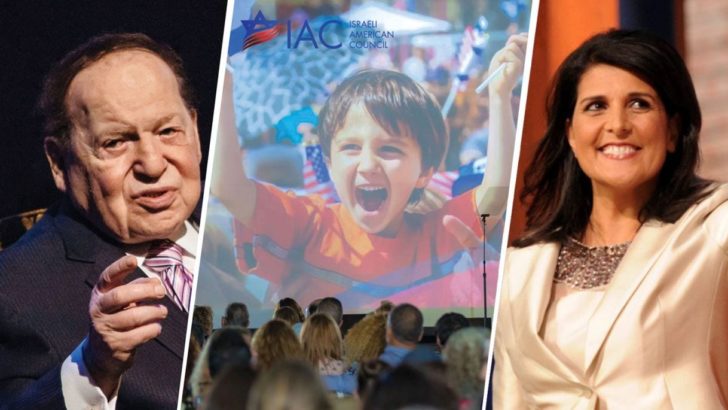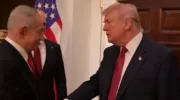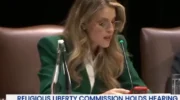By Amir Tibon, Ha’aretz
WASHINGTON – Thousands will gather in the U.S. capital this Friday for one of the largest Israel-related events of the year – the annual conference of the Israeli-American Council.
The event will mark 10 years since the IAC’s foundation, and will also be the nonprofit’s first conference under U.S. President Donald Trump, whose campaign was supported by tens of millions of dollars from the IAC’s most prominent backer, gambling tycoon Sheldon Adelson.
The IAC started life in 2007 as a Los Angeles nonprofit, focusing on organizing the local community of nearly 200,000 Israelis and ex-Israelis. Ten years on, it is a national organization with 15 regional branches and is emerging as an influential political player in Washington.
This year, the IAC’s conference will feature, for the first time ever, a prominent speaker from the ranks of the U.S. government: U.S. ambassador to the UN Nikki Haley, who is a favorite among the right-leaning “pro-Israel” crowd.
Haley’s Israeli counterpart at the UN, Danny Danon, is also scheduled to speak, as will Israeli Education Minister Naftali Bennett, who leads the religious, right-wing Habayit Hayehudi, and Israeli Deputy Foreign Minister (and Likud MK) Tzipi Hotovely. There will be one left-wing speaker, MK Merav Michaeli, from the opposition Zionist Union party.
The IAC presents itself as a bipartisan organization that doesn’t lean either right or left politically. In an article published last month on The Times of Israel website, the organization’s co-founder and CEO, Shoham Nicolet, wrote the following: “[The year] 2013 was a pivotal movement [sic] in the history of the IAC. Dr. Miriam and Sheldon Adelson were introduced to the IAC, and overnight decided to drive its nationwide growth. During an event in their home, several months before last year’s Presidential Elections, Mr. Adelson, standing before an IAC crowd, smiled and said: ‘You all know who Miri and I vote for, it is probably not a secret.’ The audience laughed. Then, he became serious, and said that if the IAC ever becomes a partisan organization, it will fail. He continued and emphasized – to win the fight for Israel and the future of the Jewish people, we must have everyone as a part of the IAC – Democrats and Republicans alike.”
But the notion that the IAC isn’t affiliated with Adelson’s personal politics isn’t accepted by some of its critics.
Earlier this year, a group of Israeli parents in the Washington area protested the nonprofit’s involvement in the local branch of the Friends of Israel Scouts – an incident that highlights the friction between the IAC’s identity as a community organization and its growing involvement in politics.
An advertisement for the Israeli-American Council’s National Conference, from Nov. 3-6, in Washington, D.C. Three right-wing Israeli politicians will be speaking.
Ever since its foundation, the IAC – which until 2012 was called the Israeli Leadership Council – has had a working relationship with FOIS, a U.S. youth movement connected to the Israel Scouts movement (Tzofim).
In 2013, the Adelsons became the IAC’s most prominent supporters. At the same time, the organization also increased its partnership with the FOIS. According to a statement provided to Haaretz by the IAC, in 2017 alone, the organization gave more than $500,000 to FOIS. Miriam Adelson, it should be noted, is also on the board of directors at FOIS.
Joint membership
One sign of the increased cooperation between the two groups is that parents wanting to enlist their children in the U.S. version of the Israel Scouts were asked, as part of the registration process, to become members of the IAC. When completing an online registration form to join the Israel Scouts in the Washington area, the parents were asked to accept the following statement: “The Tzofim [Israel Scouts] benefits from a partnership and grant from the Israeli-American Council (IAC). As a member of the Tzofim, I agree to become a member of the IAC. This membership is free, and I may occasionally receive news and updates. Please check ‘Yes, I agree’ to confirm Tzofim and IAC Community Membership.”
A group of angry parents complained to the FOIS national leadership this summer, saying it was unfair to ask parents to join a political movement that is supported by one of the most prominent donors to Trump’s presidential campaign – and who also happens to own Israel Hayom, the free Israeli newspaper that’s seen as a mouthpiece for Prime Minister Benjamin Netanyahu – simply because they want to send their children to a nonpolitical, nonpartisan youth movement.
The IAC told Haaretz that these parents “complained about the IAC’s relationship with the Friends of Israel Scouts as a result of false information that they had received from a few individuals,” adding that “the IAC was never involved with the Friends of Israel Scouts’ structure, strategic decisions or the content of their programming.”
Still, following the parents’ protests, the registration process – at least in the Washington area – was changed. Haaretz was unable to verify if a similar change was made elsewhere. Today, parents who enlist their children in the Scouts movement in the D.C. area can choose to receive updates from the IAC – which continues to support the local Scouts branch – but it is optional, not compulsory.
Some of the parents who protested the previous demand to enlist as IAC “members” claimed that the purpose of the demand was to allow the IAC to present a misleading picture regarding its actual number of members.
The leader of a Jewish organization that has previously cooperated with the IAC told Haaretz that this is a sensitive question. “Does a person who came to one of the picnics the IAC organizes for Israeli families automatically become a ‘member’ of the organization? Can that person, who just wanted to meet other Israelis and have a good time with the community, be used as a political asset when the organization’s political arm comes to members of Congress and tells them, ‘Just this month, we enrolled thousands of new members’?”
The IAC tells Haaretz that it “used to describe anyone who connected to our organization as a ‘member.’ We no longer do. We have changed the terminology for describing these relationships, but not the nature or purpose of them. We changed this terminology for other programs as well, not only for describing our relationship to participants in the Friends of Israel Scouts.”
The organization also emphasizes that there is a clear separation between its political arm and its community-building work.
The parents’ protest, and the way it was resolved, is a local issue that isn’t likely to affect the IAC’s national growth and expansion. As of today, the organization has 15 regional offices across the United States, as well as more than a dozen local partnerships. But the incident does show the challenges the IAC is facing in the current political climate, as a nonprofit that started out with a clear mission of organizing a community, but today is becoming increasingly involved in politics.
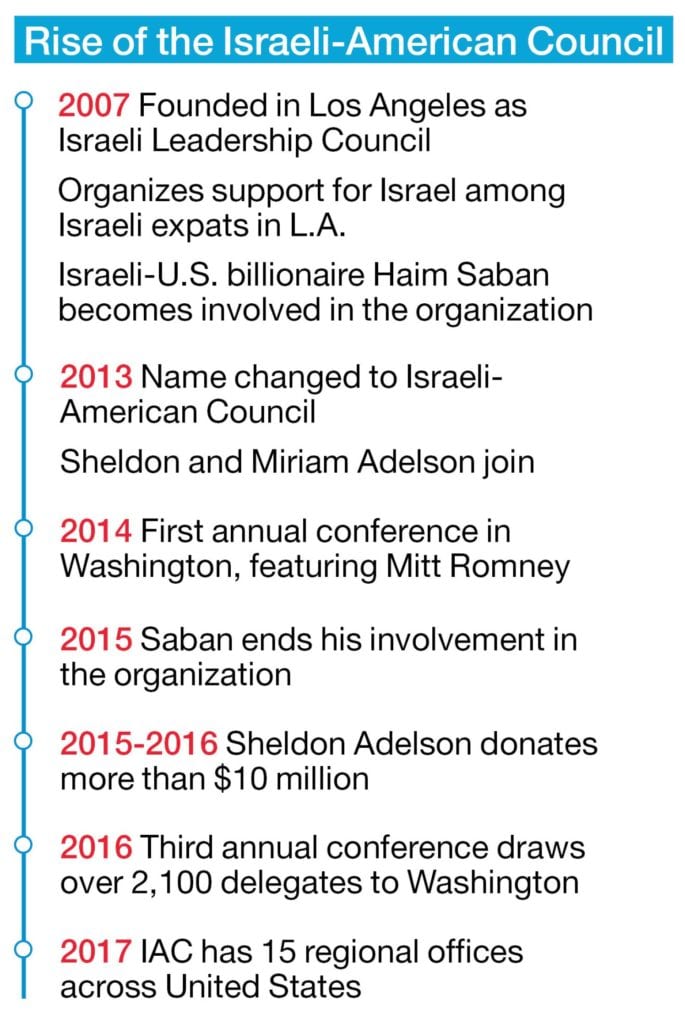
The Saban years
The IAC leadership acknowledges that the main engine behind the organization’s growth in recent years has been the support of Sheldon Adelson. In the years 2015 to 2016, the Adelsons donated more than $10 million to the IAC. However, long before Adelson became the most prominent donor affiliated with it, the IAC enjoyed the support of another Jewish billionaire – Haim Saban. Unlike the Boston-born Adelson, Saban is actually an Israeli citizen. He emigrated to the United States in the 1980s, settled in Los Angeles and made a fortune in the entertainment industry.
Saban’s early involvement in the IAC was a natural fit: He’s an Israeli-American, the organization was founded in his adopted hometown and it had no clear political affiliation. Saban is known as a major supporter of the Clintons and the Democratic Party, but when it comes to Israeli politics, he has enjoyed close relationships with prime ministers and other senior politicians from both the left and right.
The IAC has initiated political activities in support of Israel ever since its foundation. In fact, one of the reasons for its foundation was that prominent Israeli-American business and community leaders in Los Angeles found it disturbing that, despite the presence of hundreds of thousands of Israelis in California, few of them ever bothered to show up at local demonstrations in support of Israel.
The IAC’s political tone in its early years was firmly within the Israeli consensus, while also maintaining a clear bipartisan stance in the United States. For instance, the most successful project it led in 2008 was called Live Sderot. It recruited prominent U.S. politicians to express solidarity with the southern Israeli city of Sderot, which is located near Gaza and had been bombarded with missiles by Hamas and other terror organizations since the early 2000s. Both Barack Obama and John McCain – the two main candidates in the 2008 presidential election – produced videos expressing their support for the IAC’s campaign. Obama also visited Sderot during his July 2008 trip to Israel.
The IAC’s first national conference, in November 2014, took place after Adelson became involved and had a different political tone. Two speeches generated the most headlines. The first was by Mitt Romney, the failed Republican presidential candidate in 2012, who had received massive support from Adelson in his attempt to unseat Obama. Romney used the organization’s stage to call Obama “divisive and dictatorial and demeaning to our friends.”
The second speech was actually an on-stage conversation between Saban and Adelson. The idea was to show the two megadonors – one Democrat, the other Republican – sending out a joint message of unity. But while they both shared a tough line on Iran (Saban said Israel should “bomb the living daylights out of these sons of bitches”), they disagreed strongly on the Palestinian issue. Saban said that without a two-state solution, Israel could be forced to choose between remaining a Jewish state and a democratic one. Adelson responded, “Israel isn’t going to be a democratic state – so what?” (Some of his allies later claimed the remark was made as a joke.)
A year later, in October 2015, it was reported that Saban had decided to end his support for the IAC. The organization insisted Saban’s decision to distance himself wasn’t a result of the IAC’s politics – which still remain strongly bipartisan, according to its leadership.
Yet a person close to Saban tells Haaretz that although “it wasn’t the only factor, it definitely was a factor. The IAC has changed since the height of [Saban’s] involvement. It has more money and influence – and that’s a good thing, because it’s truly an important organization. But [its] growth has come with a price, and it’s a price that not everyone is willing to pay.”
An early supporter of the organization who is no longer affiliated with it expresses similar views: “The IAC has dramatically changed since 2007. For good or bad? Depends who you’re asking. But it’s not the same organization I was a part of.”
The IAC rejected this, telling Haaretz that it is grateful to Saban for his years of support, and that it has not changed its orientation. “Since its inception, the IAC has been engaged in pro-Israel advocacy,” it states. “As the organization has grown in size and reach, so has our impact in the areas of public policy and advocacy.
“As an American immigrant community, Israeli-Americans have a duty to be active citizens engaged in politics and public life. … All of the advocacy work that the IAC is doing on behalf of our community is bipartisan. We have great relationships with members of Congress on both sides of the aisle.”
Competing with AIPAC?
Congress is indeed where the IAC is now setting its sights. In 2016, a partner organization called Israeli-American Coalition for Action (IAC for Action) was founded. It focuses on political lobbying in Congress, on issues such as Iran and combating the boycott, divestment and sanctions movement.
An IAC spokesperson says the organization isn’t going to endorse political candidates in the 2018 midterm elections. When Haaretz asked if the IAC is planning to start arranging congressional delegations to Israel, the nonprofit responded: “Our sister organization, IAC for Action, is working in D.C. and across the country on a number of issues important for our Israeli-American community, such as the fight against BDS campaigns targeting the State of Israel. The IAC for Action is also working with many members of Congress on both sides of the aisle to advance legislation on these issues.”
For decades, congressional delegations to Israel have been a signature area of expertise for the American Israel Public Affairs Committee, the veteran and powerful pro-Israel lobby that is mostly led, funded and supported by American Jews. Every year, AIPAC brings dozens of members from both parties to Israel. If the IAC begins organizing such delegations in the future, that could put the two organizations in direct competition.
When approached by Haaretz, representatives from both organizations denied any sense of competition or enmity. An AIPAC official told Haaretz that AIPAC views the IAC as a “partner organization” that supports a common goal – strengthening the U.S.-Israel relationship.
According to the IAC, it “has a great relationship with AIPAC. Our delegation to the Policy Conference has grown every year. Some of our board members, including the chairman of our board, are AIPAC donors. IAC for Action, our sister organization, is complementary to AIPAC and values the work that AIPAC is doing.”
But three leaders of Jewish-American groups, none of whom are affiliated with the left, told Haaretz that they believe the nature of the relationship is more complicated. They point out that Adelson used to be a major donor to AIPAC (his name is inscribed in the lobby’s Washington headquarters), but reportedly cut his ties to the organization a decade ago because of its support for a U.S. congressional letter requesting increased aid to the Palestinian Authority.
“The IAC wants to grow and become more influential,” one of these Jewish-American leaders adds. “They’re organizing a national conference at the same place where AIPAC is holding its conference in Washington. They’re enlisting thousands of new members. They’re getting into Congress. The bottom line is, they’re growing and their growth isn’t going to come at the expense of J Street or the ADL.”

When presented with questions about its political leanings, the IAC says it has been “a pro-Israel – and bipartisan – organization since its inception. We have been successful because we do not view, position or describe ourselves as left-wing or right-wing. The bipartisan nature of the IAC is demonstrated by the makeup of our leadership and community, which have a diverse range of opinions that span across the political spectrum – and by our actions as an organization over the past 10 years. For instance, the IAC and IAC for Action were able to lead the charge on a variety of bipartisan legislative issues. This included securing passage of bipartisan anti-BDS bills in California and Nevada, and bipartisan support for the Taylor Force Act in Congress,” referring to the bill that would cut U.S. funding to the PA if it continues to make payments to the families of convicted Palestinian terrorists.
Two weeks ago, the organization came under fire after its chairman, Adam Milstein – also one of the IAC’s original founders – tweeted an anti-Semitic image targeting the left-wing, Jewish billionaire George Soros. The cartoon depicted Soros as an octopus sending tentacles to different corners of the globe and strangling it. Milstein later deleted the image, apologized for sharing it and said he will be “more careful” in the future when sharing images. However, the incident’s coverage in media outlets popular within the U.S. Jewish community didn’t help the IAC’s efforts to secure its position as nonpartisan and independent from the right-wing politics of its largest donors.
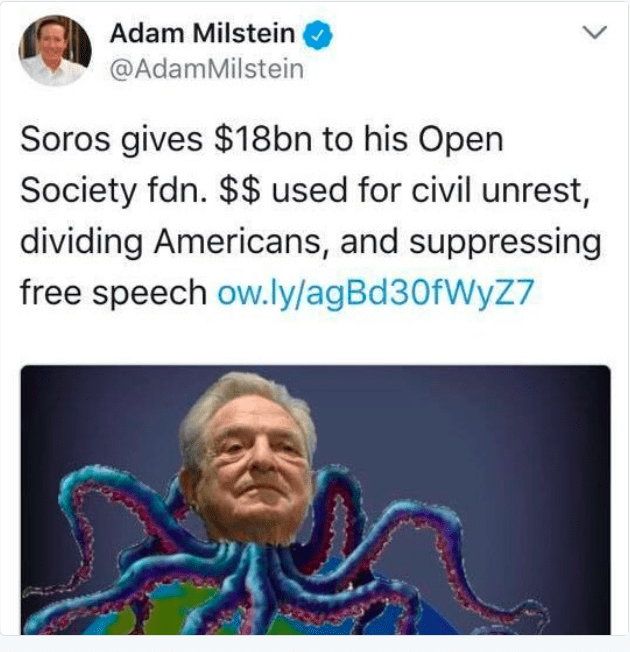
At this week’s IAC conference, besides the three right-wing Israeli politicians and one senior official from the Trump administration, there will be at least nine other speakers who are strongly affiliated with the right in the two countries. There will be only one left-wing Israeli politician (Michaeli), one U.S. expert who is considered a centrist, pro-Israel Democrat (Dennis Ross, the former adviser to Clinton and Obama), and one former lawmaker from the centrist Yesh Atid party (Ruth Calderon). Another speaker will be Guy Rolnik, the founding editor of Haaretz’s business newspaper, TheMarker.
The IAC told Haaretz that it is “both unfair and inaccurate to cherry-pick a few speakers appearing at this year’s conference as a way to try and characterize the political slant of the whole conference. If you dig deeper into the background of the many dozens of speakers at this conference, you will see that the political views of our speakers span across the political spectrum – from liberal to conservative. This is particularly true for the dozens of Jewish-American leaders speaking at our three-day event reflecting opinions and organizations that represent both liberal and conservative viewpoints.”
The organization added that it also invited the new leader of the Israeli Labor Party, Avi Gabbay, to speak at this year’s conference, but he couldn’t because of scheduling issues.
For the IAC leadership, the most important number will be the number of attendees. And from conference to conference over the past four years, that number has grown significantly. When the IAC held its first annual conference in 2014, there were fewer than 800 participants. This had grown to more than 2,100 in 2016, and the IAC expects an even bigger crowd this year.
Sheldon Adelson explained this phenomenon during last year’s conference, stating that in five years the IAC will be “really, really big.
“I see it growing, because word is spreading,” he explained. “This movement has momentum.”

